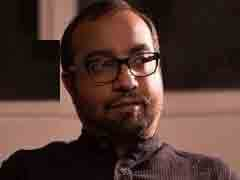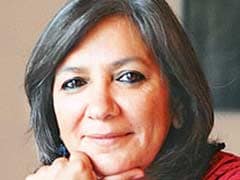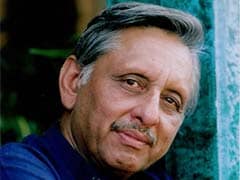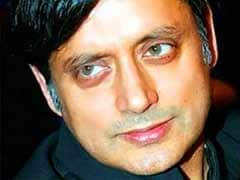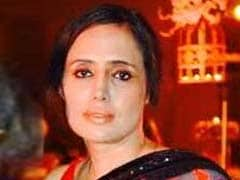- Home/
- What's At Stake for Modi When Obama's Here
What's At Stake for Modi When Obama's Here

Harsh V. Pant
US Secretary of State John Kerry's visit to India and Pakistan last week was remarkable for revealing the dramatic transformation in America's South Asia policy over the last few years.
While there is a persistent complaint in sections of the Indian elite that Washington fails to take New Delhi's concerns seriously, Kerry's visit was once again an indication that American foreign policy has managed to substantively de-hyphenate India and Pakistan. There continue to be differences in perspectives over a range of issues between Delhi and Washington, but the election of Narendra Modi has given Washington another opportunity to reformulate its South Asia policy. And Kerry made it clear that the US intends to make full use of this opportunity.
His trip comes ahead of US President Barack Obama's visit to India later this month as the chief guest at India's Republic Day celebrations and should be seen as an important benchmark of the prevailing sentiment in the US.
Speaking at the Vibrant Gujarat investment summit in Ahmedabad last week, Kerry made a forceful case for stronger economic ties between the United States and India with a special focus on areas such as trade policy, energy, telecommunications, climate change, and intellectual property. "We can do more together and we must do more together and we have to do it faster," Kerry said at the summit, which Modi started when he was Gujarat's Chief Minister.
Kerry also underscored the opportunity for US firms to help Modi achieve his economic goals. One of Modi's initiatives is reforming the Indian business environment for easier foreign investment. Bilateral trade stands at approximately $30 billion at present, and Washington shares Modi's goal of increasing annual trade five-fold in the future.
Defense cooperation has emerged as a major area of bilateral cooperation. Obama and Modi have already renewed the 2005 New Framework on Defense and expanded its scope with the declaration that the two states will "treat each other at the same level as their closest partners" on issues including "defense technology transfers, trade, research, co-production, and co-development." Two major projects, one involving unmanned aerial vehicles (UAVs) and the other involving systems for the C-130 military transport aircraft, are likely to be finalized during the US President's visit.
Regional security cooperation between Washington and New Delhi also seems to be gaining momentum. During the Indian Prime Minister's visit to the US in September 2014, the two states had identified new areas of collaboration including ensuring stability in South China Sea and sharing information on strife-torn parts of the Middle East. And now reports are emerging that India has decided to join the fight against the Islamic State. The Modi government favours India's participation in the peace mission in Iraq and Syria. If so, this would mark a major shift in New Delhi's worldview.
Washington has long been keen that Indian armed forces should participate in global missions in the conflict zones in the Middle East. Obama's visit is likely to result in a fuller picture as to what tangible actions the world's two major democracies plan to take to manage regional security.
At a time when Indo-US ties are poised to take an orbital leap, Pakistan's role in the US foreign policy matrix is getting narrower. In recent months, Islamabad has been trying its best to shore up its credentials as a state determined to fight terrorism in the eyes of Washington. During Kerry's unannounced visit to Pakistan last week, where he held talks with Prime Minister Nawaz Sharif and Chief of Army Staff General Raheel Sharif to encourage Pakistan in its fight against militants in restive tribal regions, seven prisoners were hanged in four different jails across the country in a move to underline the country's resolve to push back against Islamist militants.
There have been reports that the Pakistani government is planning to ban the Haqqani Network and Jamaat-ud-Dawa, which had previously been designated by the United States and United Nations as a front for Lashkar-e-Taiba, as well as other organizations in what is being termed as a "paradigm shift" in its counter-terrorism and security policy. The US has designated Pakistani Taliban commander Mullah Maulana Fazlullah as a "specially designated global terrorist," freezing all of Fazlullah's assets in the United States and making it a crime for Americans to engage in transactions with him. Fazlullah, who became head of the militant group in November 2013, claimed responsibility for the Dec. 16, 2014 attack on a school in Peshawar that killed 150 people, most of who were children. He also ordered the attempted assassination of Pakistani schoolgirl Malala Yousafzai in 2012.
At the end of the first day of Kerry's visit, Washington merely stated that the United States plans to provide $250 million in emergency aid to Pakistan to help resettle and sustain civilians displaced by the military's campaign against the militants. Making it clear that the US has no intention of involving itself as a mediator between India and Pakistan, Kerry said that the US was "deeply concerned by the recent spate of increased violence along the working boundary and the Line of Control (LoC), and that it was "in the interests of Pakistan and India to move this relationship forward."
A robust engagement with India is likely to emerge as the centrepiece of America's new regional policy and Pakistan will rapidly be relegated to the margins if it doesn't put its own house in order. That was the message of the Kerry visit to the region last week and that will be also be the message of Barack Obama's visit next week. A lot of the credit for this newfound American seriousness towards India should go to Modi's bold foreign policy moves since assuming office.
It will be interesting to watch how he will leverage Obama's coming visit to India.
Disclaimer: The opinions expressed within this article are the personal opinions of the author. NDTV is not responsible for the accuracy, completeness, suitability, or validity of any information on this article. All information is provided on an as-is basis. The information, facts or opinions appearing in the article do not reflect the views of NDTV and NDTV does not assume any responsibility or liability for the same.
................................ Advertisement ................................
Opinion
MoreOpinion: China Has Helped India's Cause With TrumpMihir Sharma, Bloomberg
Thursday June 29, 2017Very little was expected in India from Prime Minister Narendra Modi's visit to the U.S., and for good reason: Modi had gone out of his way to cultivate a personal relationship with Barack Obama, including famously pouring out a cup of tea for him and the cameras when Obama visited India.
Opinion: Modi's US Speech Was Letter Perfect, Ticked Off Every BoxAshok Malik
Friday June 10, 2016Without taking recourse to the old wailing sheet and cribbing to everyone about Islamabad, Modi has devised a mechanism to shape the debate to India's advantage.
Opinion: Modi Ignored Advice To Make Obama Squirm. It Has Paid Off.Jyoti Malhotra
Saturday June 04, 2016The visit to the US in the coming week, in fact, brings Obama's relationship with both Modi and India full circle.
Blogs: कादम्बिनी के कीबोर्ड से : क्या परमाणु करार पर पीछे हटे हम?
Sunday February 08, 2015असल में परमाणु रिएक्टरों में हादसे की सूरत में जो हर्जाना होगा, वह रिएक्टर चलाने वाले को यानि ऑपरेटर को देना होगा। कानून में यह प्रावधान है कि अगर ऑपरेटर चाहे तो वह सामान और ईंधन आपूर्ति करने वाले पर हर्जाने के लिए दावा कर सकता है। लेकिन यहां पर समझने वाली बात यह है कि ऑपरेटर कौन होगा।
Opinion: Mani-Talk: Modi is Turning Us into America's New PakistanMani Shankar Aiyar
Thursday February 12, 2015In "Cold War II", battlefield could be India, writes Mani Shankar Aiyar.
Opinion: Obama Had Pointed Message for Modi 2.0Shashi Tharoor
Wednesday January 28, 2015Clear warning that PM will fail if he reverts to Modi 1.0, writes Shashi Tharoor.
Opinion: What Pakistan Makes of Obama-Modi ChemistryMehr Tarar
Tuesday January 27, 2015Acceptance of Modi's goal-oriented leadership, writes Mehr Tarar.



